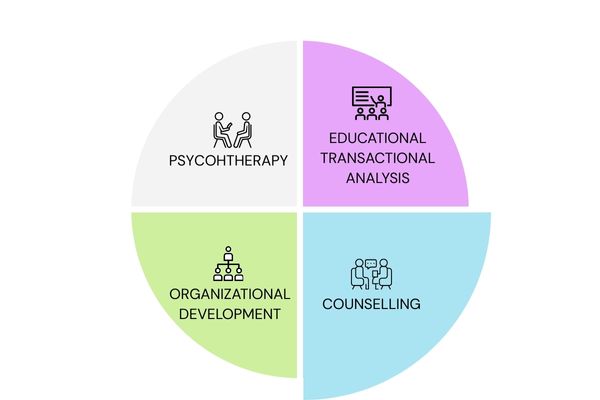TA Counselling

Transactional Analysis in Counselling
Empowering Self-Awareness, Growth, and Change
Counselling with Transactional Analysis (TA) offers individuals a powerful framework to explore their thoughts, feelings, and behaviours. It supports clients in making sense of current difficulties by uncovering underlying patterns often shaped in early life. TA is widely used by counsellors working in schools, communities, private practice, and mental health organisations.
What is TA Counselling?
TA counselling is rooted in the belief that everyone can think, decide, and change. It offers practical tools to help clients recognise the unconscious scripts they follow and the roles they adopt in relationships. Using the PAC model (Parent–Adult–Child), clients learn to identify how internal voices and past experiences influence present-day interactions.
While psychotherapy in TA often focuses on deeper, long-term issues, TA in counselling is typically short to medium-term, offering timely support for a wide range of personal, emotional, and relational challenges.
Who is it for?
TA counselling is suitable for individuals who want to:
- Navigate emotional difficulties such as anxiety, stress, or low mood
- Improve communication and relationship dynamics
- Explore self-worth, confidence, and decision-making
- Understand patterns that keep repeating in life
- Make conscious, empowering changes
It is also ideal for professionals working in:
- Schools and youth settings
- Community organisations
- Health and social care
- Coaching and wellbeing sectors
Key Concepts Used in TA Counselling
- Ego States (PAC): Understanding how we shift between Parent, Adult, and Child parts of ourselves in different situations
- Life Script: Exploring the story we’ve unconsciously written about ourselves and rewriting it with more freedom and autonomy
- Transactions: Analysing everyday interactions to enhance clarity, reduce conflict, and foster healthier connections
- Games and Payoffs: Recognising repetitive patterns that lead to disappointment or misunderstanding—and learning to step out of them
- Life Positions: Moving toward a grounded belief of “I’m OK – You’re OK” in self and others
How TA Counsellors Work
TA-trained counsellors work relationally and collaboratively. They believe in transparency and often share concepts with clients to support shared understanding and empowerment. The counsellor and client agree on goals (a contract), and the work remains focused, respectful, and co-created.
Counsellors using TA draw from both the client’s present concerns and relevant past experiences, always aiming to increase awareness, autonomy, and emotional literacy.
Training and Professional Pathways
TA counselling training is structured through internationally recognised qualifications. Students begin with foundational courses and may go on to work toward the Certified Transactional Analyst (CTA – Counselling) qualification under the standards of ITAA (International Transactional Analysis Association) or EATA (European Association for Transactional Analysis).
Many counselling trainees integrate TA into their existing qualifications in mental health, coaching, or education.
Why Choose TA Counselling?
- Offers clear, practical tools for self-understanding
- Empowers clients to take control of their inner and outer worlds
- Builds stronger relationships through better communication
- Creates lasting change by addressing root patterns, not just symptoms
- Provides a respectful, collaborative approach to growth
Lorem ipsum dolor sit amet, consectetur adipiscing elit. Ut elit tellus, luctus nec ullamcorper mattis, pulvinar dapibus leo.
